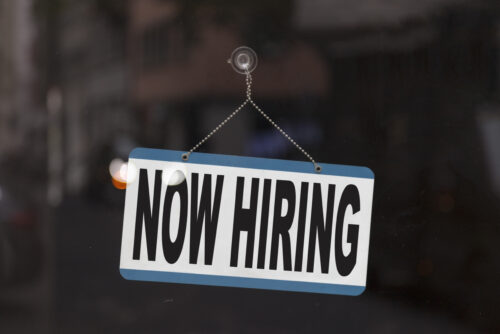This economic downturn caught us all off guard. Nicole Rizkallah sat down with Jeremy Beer to discuss his new e-book, Fundraising When Times Are Bad, and his thoughts about fundraising through a pandemic and an economic downturn.
American Philanthropic’s founder and principal partner, Jeremy Beer, just released a new e-book entitled, Fundraising When Times are Bad: A Guide for Nonprofit Leaders. This book grew out of American Philanthropic’s regular dialogue with clients and other nonprofits, frequent publishing of articles about how to fundraise smarter, daily work with nonprofits of all stripes, and the company’s commitment to doing whatever they can to share practical wisdom, strategy, and tactics with fundraisers.
With the book releasing yesterday I took a few minutes to meet with Jeremy to discuss his new e-book. While the e-book answers more technical questions about how nonprofits can successfully adapt when economic times are hard, I was more interested about Jeremy’s general thoughts about fundraising and what he has observed of our humanity during this strange time.
Why did you write this book?
I wanted to help nonprofit leaders and fundraisers navigate the rough landscape that may lie ahead. With so much changing so quickly, I knew a comprehensive piece about navigating these times could be helpful.
When COVID-19 hit, the way we live changed. How do you think that impacted the work of fundraisers and the business of fundraising? What will remain forever changed?
I don't know that anything will remain forever changed in fundraising; in fact, I would disagree with those who say we will never gather together in large groups again for things like fundraising events. I think sociality is too deeply ingrained in human nature for that to happen. Perhaps I will turn out to be wrong. But right now, the pandemic has made building relationships with donors and prospects more challenging—especially the latter. Finding the right balance between staying the course and creative adaptation is something we try to provide some wisdom on in this book.
You mention in the book that most nonprofits are underinvested in development. How can you help leaders appreciate this reality when the economy is so uncertain?
Well, if they didn't appreciate that reality before, they probably are now! I actually think this will be a good lesson for many nonprofit leaders. Those who are underinvested in development but don't yet realize it are going to see those of their peers who are more appropriately invested in development (both financially and personally) rise to the challenge—some will even take off. A lot of nonprofits will sink or even close their doors. In any case, reality will force its own appreciation of fundraising's importance. I hope the lesson doesn't come too late for most of our nonprofits.
You have a way of balancing insights into human behavior with economic forecasts. What surprised you the most as you wrote this book and thought about human behavior in such uncertain and difficult times?
I suppose I was disappointed in how timid and cautious some nonprofit leaders proved to be by going into holes and shutting down significant aspects of their operations prematurely. On the positive side, I have been pleasantly surprised by how many nonprofits adapted quickly and kept their fundraising programs running at a high level—or as high as they possibly could. Overall, I am rather shocked at how well nonprofits are doing in this uncertain environment, and I’m hoping this book will provide further encouragement and inspiration.
The dictum “fundraising is about relationships” is throughout the book—what do you think is the greatest challenge affecting our ability to remain relational?
Well, the greatest challenge is in not seeing and being with people in person. We are enfleshed beings, so personal proximity counts for a lot! We also lose information when we aren't meeting with people in person—information that helps build and strengthen relationships. If I can't walk into your kitchen for a meeting, I don't get to see what pictures you have on the wall, how you have decorated your house, what is in your yard, and so on. That's all stuff that wise fundraisers notice and lean on for cues as to what a donor values, which then helps them figure out where there is or is not alignment. Until we get back to meeting in person, relationship-building is just going to be hard. And that's bad for civil society. The quicker we can get back to normalcy, the better it will be for all of us.
That reminds me of what Flannery O’Connor once said, “Somewhere is better than anywhere.” Any closing words of advice to nonprofit leaders, fundraisers, and donors?
There are some pretty good nuggets of advice, some of it technical, on how to adapt your fundraising with respect to events, direct mail, and other tactics. But other than that, we rather pride ourselves on adhering to the fundamentals. Readers might think of this book as akin to a golf manual that helps them get their swings back in order. We aren't introducing new clubs or fancy golf balls, but reminding them about the importance of balance, mechanics, etc. And if you don't know anything about golf, I hope that nevertheless still makes sense.
Jeremy Beer is the principal partner and co-founder of American Philanthropic and the editor of Philanthropy Daily. You can order his new e-book, Fundraising When Times Are Bad, here. You can reach Jeremy by email at jbeer@americanphilanthropic.com.
Nicole Rizkallah is a senior consultant and the director of recruitment at American Philanthropic. You can reach Nicole by email at nrizkallah@americanphilanthropic.com.






